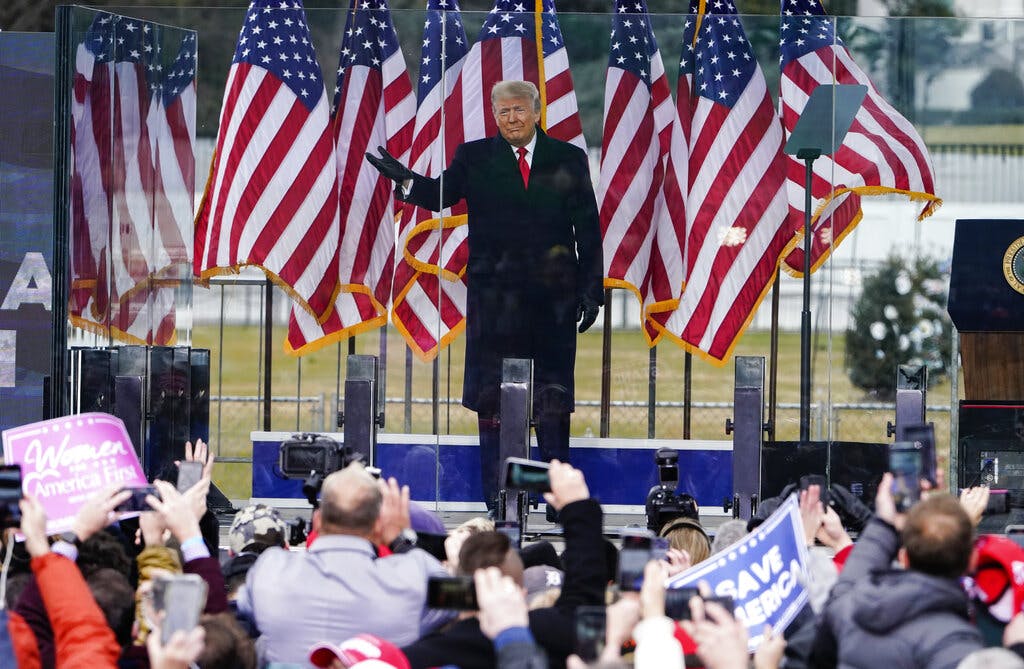Jack Smith Uses a Warrant To Ransack Trump’s Twitter Account — Including Direct Messages — for Incriminating Clues
An unsealed edition of a warrant for the former president’s X account discloses that the special counsel gained access to direct messages, and draft ones.

The unsealing of a redacted search warrant, obtained by Special Counsel Jack Smith in January, to ransack President Trump’s account on X — formerly known as Twitter — surfaces just how deep the prosecutor has dug in his effort to convict the 45th president for allegedly attempting to overturn the 2020 election.
The thought of government attorneys rifling through Mr. Trump’s account cannot be pleasing to the 45th president, whose use of the platform was crucial to his victory in the 2016 election and to defining his public persona during his presidency. Mr. Trump was “permanently suspended” from what was then Twitter in the days after January 6, 2021, when Twitter’s management claimed there was “the risk of further incitement of violence.”
That decision was reversed when the company’s new owner, Elon Musk, described as a defender of free speech, last year held a poll asking if Mr. Trump should be allowed to return. By a 51 percent vote, 15 million users said he should. Mr. Musk, noting that “the people have spoken,” lifted the ban. Mr. Trump, though, has hung back from rejoining in favor of using his own Truth Social service, where his audience is relatively small.
Mr. Smith’s warrant, approved by a court at the District of Columbia, covered “information associated with the Twitter account ‘@realDonaldTrump.’” That “information” comprises the “content of all tweets created, drafted, favorited, liked, or retweeted” by Mr. Trump, “including all such deleted tweets.”
The special counsel also gained access to “all direct messages sent from, received by, stored in draft form in, or otherwise associated with” Mr. Trump’s account, which at its peak boasted nearly 90 million followers. That could be a crucial trove as it is information that has never been made public.
It is not known how many direct messages Mr. Trump sent, considered sending, or how many messages intended to be public were drafted and not sent. Mr. Trump relied on a longtime aid, Dan Scavino, to manage the account, so not all draft messages, should they exist, were necessarily Mr. Trump’s or even approved by Mr. Trump. Still, they lived under his account.
The warrant discloses that Mr. Smith displayed a particular interest in the period between October 2020 and January 2021, meaning a stretch of time between the election and the riot at the Capitol. It appears as if the special counsel sought a full portrait of Mr. Trump’s use of the platform, including whom he followed, unfollowed, muted, unmuted, and blocked.
Mr. Smith also gained access to every notification Mr. Trump received, all of his searches, and all of his location information. Any account that “liked” or retweeted Mr. Trump would also be covered in the warrant’s ambit. Of great interest could be a tweet issued on December 19, 2020, in which the former president ventured that it was “Statistically impossible to have lost the 2020 Election. Big protest in D.C. on January 6th. Be there, will be wild!”
That message was composed and conveyed the same day as a rump meeting at the Oval Office where Mr. Trump and a coterie of outside advisors mulled naming an attorney, Sidney Powell, as special counsel to investigate election fraud. Also on the agenda was a proposal, raised by some of the attendees, to declare martial law and seize voting machines. The tweet was a linchpin of the impeachment case Democrats mounted against Mr. Trump, which concluded in a trial in the Senate. Mr. Trump was found not guilty.
The warrant’s final seven pages are redacted, meaning that much of the document is shrouded in mystery. It appears, though, that its issuance was accompanied by turbulence. In August, an appellate court upheld a ruling holding Twitter in contempt and fined it $350,000 for failing to comply with the warrant. The company, which has been in chaos since Mr. Musk’s acquisition, cited First Amendment concerns for its foot-dragging.
Also at issue was a nondisclosure order secured by Mr. Smith that kept the warrant from Mr. Trump’s awareness until after it was executed. Such orders are usually issued when judges and prosecutors fear that a criminal suspect will alter or destroy evidence before it can be secured by the government.
In any event, one question now is whether the Brady rule, handed down by the Supreme Court, requires the government to share with Mr. Trump the material that it found in the search.

